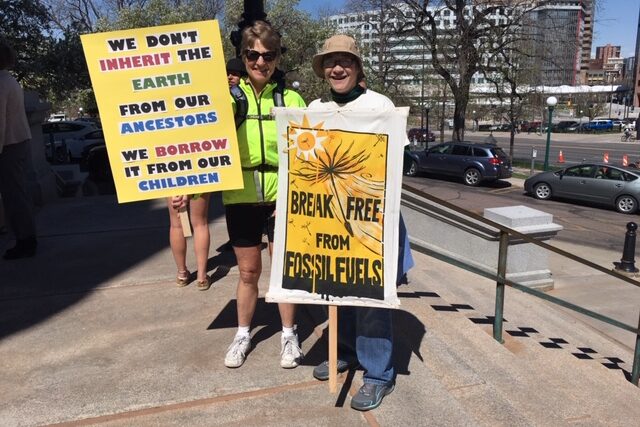What Does Creation Justice Mean to RMC Churches?
In the summer of 2022, members of the Creation Justice League (the informal ad-hoc eco-justice group of the RMC), set out to interview our UCC churches throughout Colorado, Utah and Wyoming.
We wanted to hear about about their activities around care for Creation, eco-justice, and environmental work. We were interested in what they celebrated, what they need help with, and what they’d like to see more of. We sent out emails and made phone calls, and received responses from 16 churches, throughout our three-state Rocky Mountain Conference. We thank those churches for their responses, insights, and wisdom.
From these responses, the Creation Justice League is now working on putting together Working Groups to address some of these issues. More about this in upcoming articles! For now, here’s a summary of what we’ve learned.
What churches are or have been doing:
- Lots of infrastructure actions – lighting, heating, solar panels, recycling, etc.
- They have offered and led workshops and other such events for church and community (single-use plastics, environmental stewardship practices in the home; e-waste collection event, which is also a fundraiser for the church, composting, regenerative gardening, community and impact investing, green burial)
- They have communicated within their congregations through information in their church newsletters and stewardship moments.
- They have publicized marches and other events (often taking part as individuals or as a congregation).
- They have publicized legislative information (environmental bills up for votes at the State Capitol and in DC),
- They have planned and led worship services around environmental theme (Blessing of the Animals, Earth Day).
What needs churches have expressed, what questions they have:
- Leadership is tired, needs new blood.
- The congregation is aging, and they are trying to focus on congregation survival, especially around COVID, and racial injustice.
- Churches want to collaborate with other churches and with secular community groups, even to the point of sharing space.
- Churches would like more worship resources and other sorts of resources
- Often in the church there is just a core group of a few folks doing environmental things in the church, and there is not complete church buy-in
- People are committed to individual changes, but not institutional (church) changes.
- It’s become too politicized – churches may be inactive due to fear of alienating those with opposing political viewpoints.
- Financial help from the Conference would be appreciated.
- Other support or involvement from the Conference would be nice.
- A process of interchurch communication would facilitate collaboration with other congregations on environmental justice efforts and events.
- There are so many environmental issues, churches are volunteer organizations. Everyone has their own ideas as to what to focus on, and there’s not that many people to go around to cover all the concerns and issues. Do we collaborate with local or national non-profits instead of trying to do it all ourselves, and how do we do that effectively?
Other
- Congregations need more buy-in from church members, this effort can’t just be top-down and/or pastor-only.

Leave a Reply